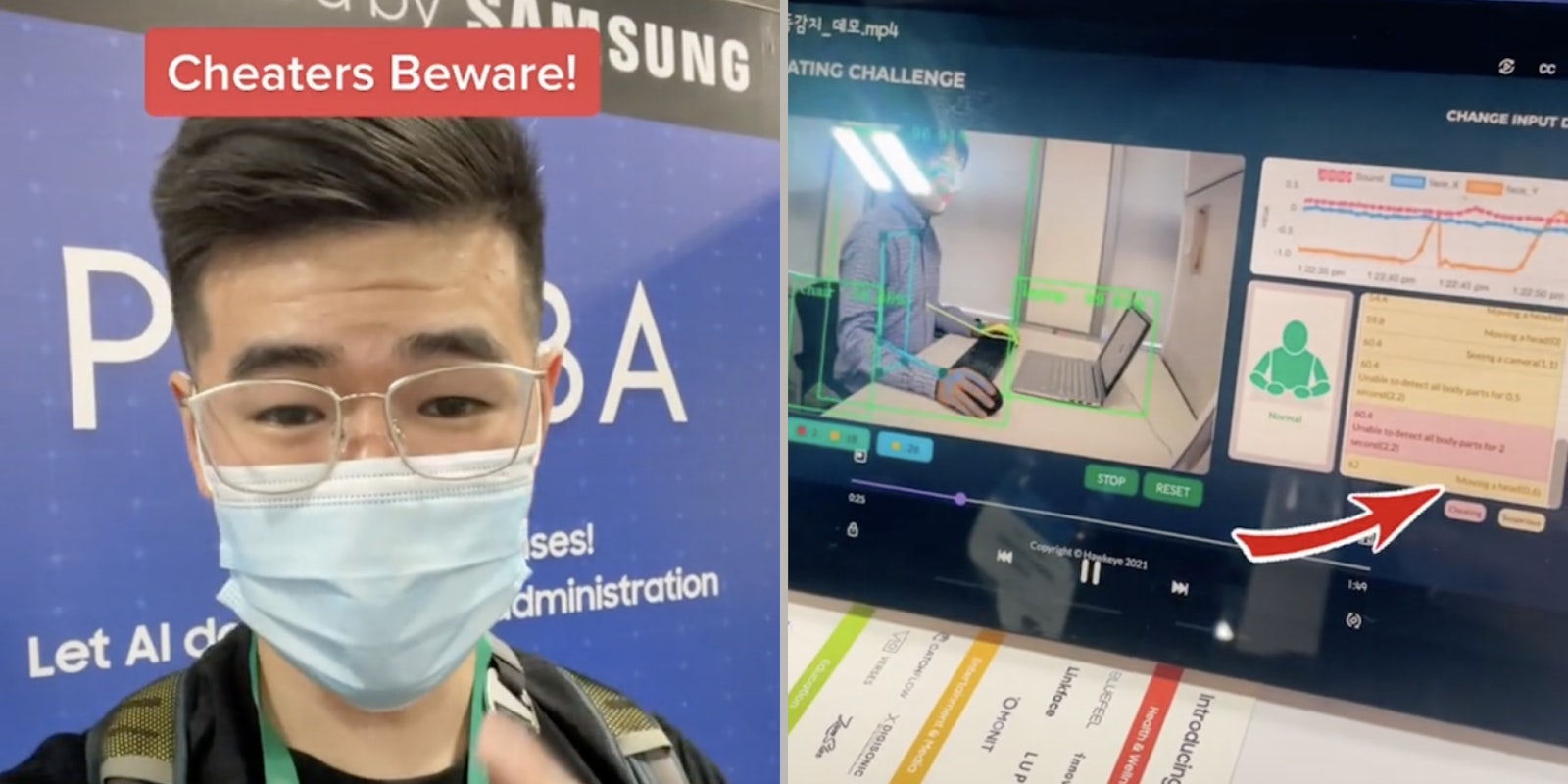New anti-cheating software debuted at Samsung’s recent Consumer Electronics Show (CES) went viral on TikTok this week, prompting debate about the American education system.
TikToker Chris Xia (@chrisxia0) posted a video of the AI software—named PROBA—from Samsung’s recent showcase on Jan. 5. Xia uploaded the TikTok five days ago and it has since reached over 1.5 million views.
“If you’re cheating in school, better beware,” Xia says in the video. “Samsung has created this new software called PROBA basically detecting tiny movements in your head, your eyes, your body to see if you’re cheating.”
@chrisxia0 New anti-cheating software by Samsung. #ces2022 #cheatingschool #ai ♬ Don’t be suspicious – io non so
Xia then shows an example of PROBA running. A test-taker appears on the screen, and computer-generated outlines track their movements. The test-taker leans back in their chair—as if to look over at a classmate’s exam—and the program flags this as “Abnormal.”
PROBA is not yet commercially available, though it could be eventually. The service was developed as part of Samsung’s startup incubator program C-Lab Inside. The tech company debuted PROBA and other new software at its annual CES showcase earlier this month. If it did well there, Samsung may greenlight the anti-cheating program for further development.
Most comments on Xia’s video were critical of PROBA. Many thought the program represented a failing education system.
“Maybe redevelop the education system to work and not need cheating than do this,” one commenter wrote.
“We spend more money trying to prevent cheating than we do trying to improve our school system,” another user wrote.
Others brought up concerns of algorithmic bias.
“So how about people who have ADHD or ADD?” one user wrote. “Staring directly for just a few secs is hard, what more a whole hour?”
Anti-cheating software became popular in schools after coronavirus caused most classrooms to go virtual. But these programs have come under fire for issues of privacy. Last month, a Dutch tech company found that Proctorio—a common anti-cheating software—was unsecured, leaving students’ computers vulnerable for hacking.
The Daily Dot has reached out to Xia via TikTok and Samsung via email.
Read more about Big Tech
| Congress barrels forward with EARN IT Act, determined to end encrypted messaging online |
| How little tech is turning the tide in the fight against big tech |
| FTC warns of ‘huge surge’ in social media scams |
| How the FTC can use ‘data minimization’ to immediately strengthen consumer privacy |
| Sign up to receive the Daily Dot’s Internet Insider newsletter for urgent news from the frontline of online. |


